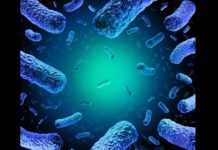SALT LAKE CITY, Utah, Aug. 30, 2016 (Gephardt Daily) — Utah public health officials are investigating a cluster of illnesses associated with the consumption of raw or unpasteurized milk.
To date, nine cases of salmonella saintpaul infection have been reported in people who reported raw milk consumption in Utah before their illness began, according to a prepared statement from the Utah Department of Health.
Onset dates range from March 20 to Aug. 14 of this year. The cases range in age from 15 to 78 years and two of the cases were hospitalized, but have recovered.
All of the cases drank raw milk purchased at Heber Valley Milk in Wasatch County. A raw milk sample collected at the dairy by a Utah Department of Agriculture and Food inspector was positive for salmonella saintpaul on Aug. 23. The most recent testing showed no signs of salmonella and the dairy has been allowed to resume sales.
Salmonellosis is a bacterial infection that causes fever, vomiting, diarrhea, abdominal pain, and headache. Symptoms usually appear from 12 hours to one week after exposure and illness can last for up to a week or more. Most people recover without treatment; however, the infection can be serious, especially for young children, pregnant women, the elderly, and those who have weakened or compromised immune systems.
“In some cases salmonella bacteria can spread from the intestines to the bloodstream and then to other body sites,” said Dr. Allyn Nakashima, state epidemiologist with the Department of Health.
“These infections are very serious and should be treated with appropriate antibiotics. If you develop severe vomiting or diarrhea after drinking raw milk, you should consult your health care provider.”
Raw milk comes from cows, goats, or sheep and has not been pasteurized to kill harmful bacteria. This raw, unpasteurized milk can contain dangerous bacteria such as campylobacter, salmonella, listeria, and E. coli, which are responsible for causing food borne illness.
Raw milk contaminated with disease-causing bacteria does not smell or look any different from uncontaminated raw milk, and there is no easy way for the consumer to know whether raw milk is contaminated.
Since 2009, there have been 30 documented outbreaks associated with raw milk sold at Utah dairies statewide, with more than 400 people becoming ill. Public health officials warn that drinking raw milk may be dangerous, regardless of where it is obtained.
Raw milk should not be consumed by young children, pregnant women, the elderly, people with weakened or compromised immune systems, or anyone who does not want to become ill.
Those who choose to drink raw milk should follow these steps to reduce the risk of illness:
• Only buy raw milk from stores or dairies permitted by law to sell it. However, a government permit does not guarantee that raw milk will be free from disease-causing bacteria.
• Keep raw milk and raw milk products refrigerated at or below 40 degrees Fahrenheit.
• Transport milk from the store to home in a cooler with ice packs.
• Do not let raw milk sit out at room temperature.






